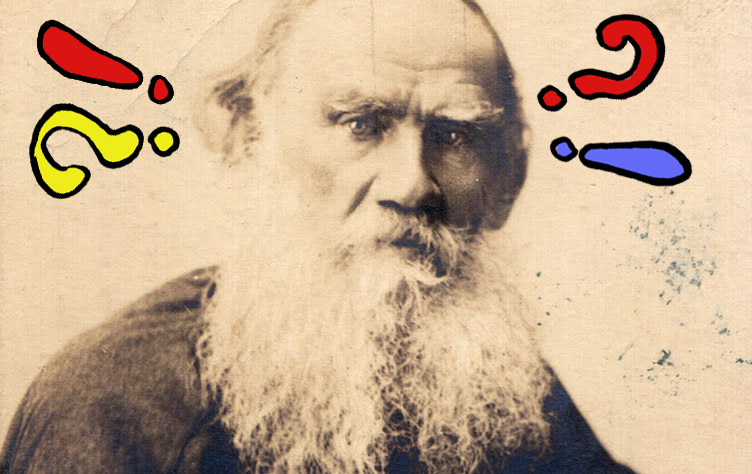
The bellicose and authoritarian Russian state’s propaganda exploitation of the anarcho-pacifist novelist Leo Tolstoy is an obvious and perverse irony. But a less obvious irony also presents itself. Like all fascist regimes, that of Vladimir Putin is stigmatizing and even criminalizing homosexuality and other sexual “deviance.” Following alarming reports of “concentration camps” for gay men in the Russian republic of Chechnya, Moscow began to impose an anti-gay agenda nationwide. A 2020 constitutional reform officially enshrined “traditional marriage,” while a “gay propaganda law” imposes penalties on any outward expression of gay identity, resulting in police raids on Moscow gay bars. The “LGBT movement” has been designated a “terrorist organization”; media depictions of same-sex love are banned as “deviant content.” Yet the venerable littérateur now glorified as a symbol of Russian nationalism may have himself been gay. In Episode 247 of the CounterVortex podcast, Bill Weinberg interviews Javier Sethness Castro, author of Queer Tolstoy: A Psychobiography (Routledge 2023).
In one sickening propaganda display, Tolstoy’s photo was dramatically plastered by Putin’s regime onto a barrier fence erected around the Mariupol Drama Theater—a civilian refuge that was bombed during the initial invasion of the Ukrainian port city in March 2022, leading to hundreds of deaths (including many children). By contrast, Marta Albertini, Tolstoy’s great-grand daughter, hosts Ukrainian refugees in Switzerland.
Sethness Castro notes that some contemporary Ukrainian ant-war writers are in the actual tradition of Tolstoy. Victoria Amelina, a Ukrainian poet and war-crimes investigator who was killed in a missile attack on a pizzeria in Kramatorsk in 2023, wrote the book Dom’s Dream Kingdom, narrated from the perspective of a dog who watches his human family struggle over Ukrainian history. This is reminiscent of Tolstoy’s short story “Strider,” an early harbinger of the animal rights movement, which is written from the perspective of a horse.
Another link to Tolstoy in the news is the British Columbia government’s recent apology to the Doukhobors, a Russian dissident religious sect, for forcibly assimilating their children in the 1950’s. Tolstoy supported the Doukhobors, who were persecuted by the Tsars for their pacifism, and even wrote Resurrection (1899) to finance their migration from the Russian Empire to Canada. His son Sergei Tolstoy and biographer Aylmer Maude led the resettlement, and Peter Kropotkin (another paradoxical anarchist aristocrat) also encouraged it.
A reassessment of Tolstoy’s sexuality is apropos at this moment in light of recent challenges raised against millennia of Christian homophobia. In any case, Tolstoy’s anti-militarism provides important perspectives for our current moment, with multiple genocides ongoing, and humanity on the knife’s edge due to the risk of escalating regional wars in both Europe and the Middle East.
Listen on SoundCloud or via Patreon.
Production by Chris Rywalt
We ask listeners to donate just $1 per weekly podcast ($5 per month) via Patreon—or $2 per podcast ($10 per month) to become a special offer Supporter, or $5 per podcast ($25 per month) to become a Major Rant Enabler. We now have 69 subscribers. If you appreciate our work, please become Number 70!




